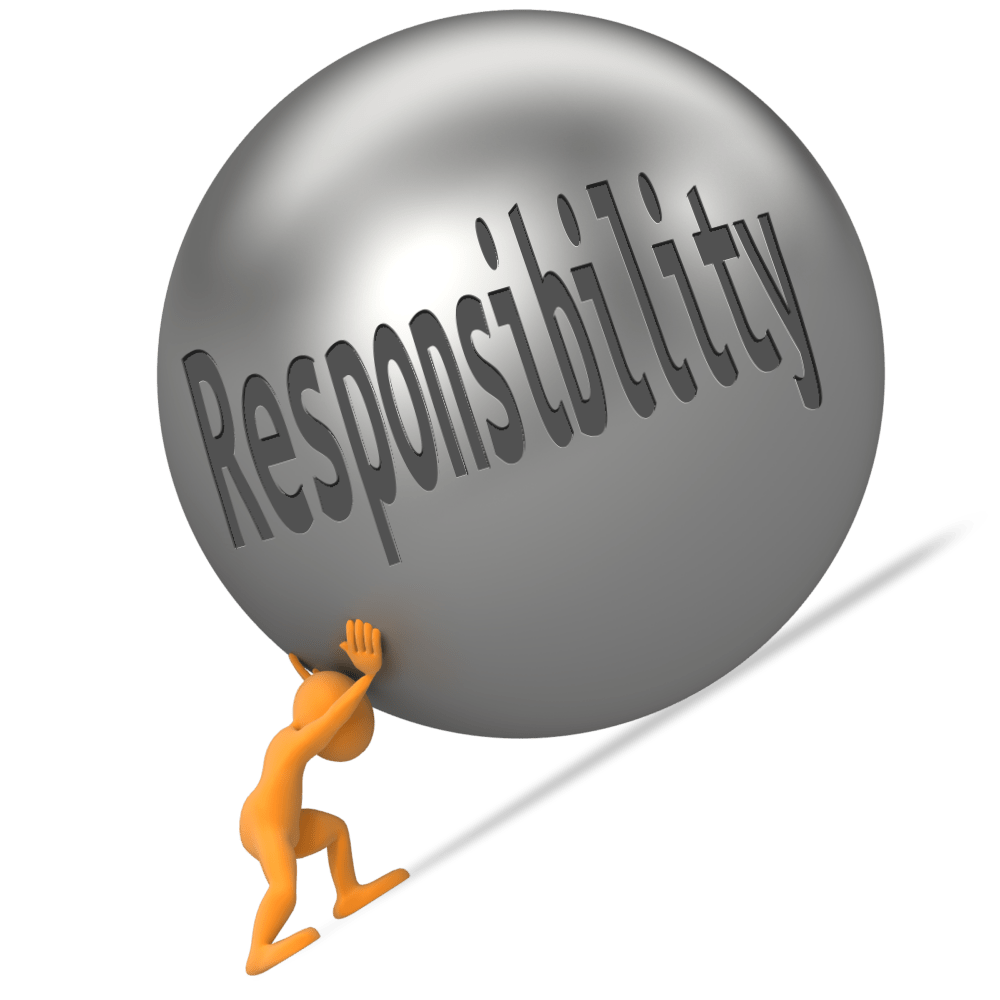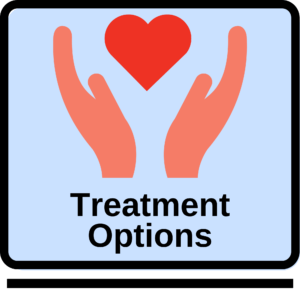Do you ever feel like you’re stuck in a never-ending cycle of responsibility? You’re not alone. Many people suffer from responsibility OCD or the fear of being irresponsible. This can manifest itself in many ways, such as constantly checking to make sure you have done everything perfectly, feeling guilty when you relax, and obsessively cleaning your house. If this sounds familiar, don’t worry – there is hope! In this blog post, we will discuss some tips on how to overcome your fear of being irresponsible and live a happier life.
Contents
What Is Responsibility OCD? 
Responsibility OCD is a type of OCD where the individual is afraid of being irresponsible. This may manifest as a fear of making mistakes, forgetting important tasks, or not being able to meet deadlines. The individual may obsessively check and recheck their work, or ask others for reassurance that they are doing a good job. In simple words, responsibility OCD is the fear of being irresponsible.
For example, responsibility OCD may cause an individual to overprepare for a presentation at work. They may spend hours making sure their slides are perfect and rehearsing what they will say. On the day of the presentation, they may feel anxious and nauseous. They may even cancel at the last minute, as they are too afraid to make a mistake in front of their colleagues.
What Are The Symptoms? 
Below are some of the symptoms of responsibility OCD:
- Worrying excessively about making mistakes or being responsible
- Feeling the need to be perfect in everything you do
- Constantly checking things to make sure they are in the right place
- Avoiding responsibility because you are afraid of making a mistake
- Procrastinating on tasks because you are afraid of doing them wrong
- Feeling guilty or ashamed of yourself for not being perfect
- Being hard on yourself for making mistakes
- Feeling like you are not good enough because you are not perfect.
What Are The Causes?
Many risk factors may cause responsibility OCD, including:
Pressure from parent or carer to be perfectionistic 
When we are growing up, we are constantly bombarded with messages about the importance of responsibility. We are told that we have to be responsible for our actions and that we have to be accountable for the consequences of our choices. This can be a lot of pressure for a young person to handle, and it can be even more difficult if you have a parent or carer who is overly perfectionistic.
For example, if your parent is always telling you that you have to be perfect in everything you do, or that you have to meet their high standards, then this can cause a lot of anxiety. This can be a very difficult burden to carry, and it can lead to you developing responsibility OCD.
Having experienced trauma or abuse
There are a variety of things that cause responsibility OCD, but one of the most common is having experienced trauma or abuse. This is because when someone has experienced trauma or abuse, they often feel like they are not in control of their own life.
They may feel like they have to be perfect in order to avoid being hurt again. This can lead to them feeling like they have to be responsible for everything in their life, in order to make sure that nothing bad happens.
Having a history of anxiety or depression
Having a history of anxiety or depression causes responsibility OCD, indeed. Responsibility OCD is when individuals have an intense fear of being perceived as irresponsible. For some, this may manifest as a need to control their environment or the people around them.
For example, a depressed person may feel the need to excessively clean their home or office as a way of managing their anxiety. Another example is that anxiety and depression can lead to a fear of making mistakes. This can result in an individual being overly perfectionistic or taking on too much responsibility at work or home.
Having a fear of failure
Responsibility OCD is characterized by a fear of failure, indeed. People with responsibility OCD often feel an intense need to succeed in everything they do in order to avoid feeling like a failure. This can lead to them putting immense pressure on themselves to do well.
For example, a student with responsibility OCD might feel like they have to get perfect grades in order to avoid disappointing their parents or themselves. This pressure can be incredibly overwhelming and can often lead to the individual feeling like they are not good enough.
Having a fear of being seen as incompetent
When someone has responsibility OCD, they may be excessively worried about being seen as incompetent or irresponsible. This can lead to them feeling the need to constantly check and double-check their work, or to overcompensate in other areas of their life.
For example, they may feel the need to be perfect in everything they do, or to always be on time. Let’s take a situation, You’re at work and you realize you made a mistake on an important project. Responsibility OCD would cause you to spend the rest of the day obsessively going over the details of the project, trying to find where you went wrong. You might even stay late to fix the mistake or redo the entire project.
What Are The Consequences?
Responsibility OCD can have many negative consequences, including:
Interference with work or school
Responsibility OCD can result in Interference with work or school. For example, an individual with responsibility OCD may be excessively worried about making a mistake at work or school, which can interfere with their ability to perform their job or do well in their classes. This may lead to significant distress and impairment in their ability to function in daily life.
Responsibility OCD often results in the avoidance of social activities and situations. This is because individuals with responsibility OCD may fear that they will be irresponsible if they do take part in these activities or situations.
For example, an individual with responsibility OCD may avoid going to a party because they fear that they will drink alcohol and then drive home, which would be irresponsible.
Loss of interest in previously enjoyed activities
Loss of interest in previously enjoyed activities is one of the key ways responsibility OCD results in negative impacts on an individual’s life.
For example, let’s say someone with responsibility OCD becomes fixated on the idea that they must constantly check the locks on their doors to make sure they are secure. This can lead to the individual no longer enjoying activities they used to love, like going for walks or visiting new places, because they become too anxious about the possibility of something happening to their home while they’re away.
Difficulty concentrating
Responsibility OCD can result in difficulty concentrating for a variety of reasons. For one, individuals with responsibility OCD may fixate on thoughts of being irresponsible and not meeting their obligations. This can lead to rumination and anxiety, which can interfere with concentration.
Additionally, responsibility OCD may cause individuals to engage in compulsions, such as repeatedly checking to make sure they have completed a task or over-preparing for an event. This can also lead to difficulty concentrating, as the individual continuously focuses on the OCD-related behaviors rather than the task at hand.
Sleep problems
Responsibility OCD can result in sleep problems for several reasons. One reason is that people with responsibility OCD often worry about things that they need to do or that they are responsible for. This can lead to difficulty falling asleep or staying asleep. Another reason is that people with responsibility OCD may have trouble relaxing and letting go of their worries, which can also lead to sleep problems.
Living on a tight schedule
Responsibility OCD can result in living on a tight schedule due to the fear of being irresponsible.
For example, if someone with responsibility OCD is late for an appointment, they may feel intense anxiety and worry that they will be seen as irresponsible. As a result, they may start to arrive early for everything in an attempt to avoid being late. This can lead to a lot of wasted time and can be very stressful. As a result, responsibility OCD results in living on a tight schedule can be very detrimental to one’s quality of life.
Feeling overwhelmed by responsibility
Responsibility OCD can result in feeling overwhelmed by the responsibility for a number of reasons. For one, individuals with responsibility OCD often feel like they need to be in control of everything in their lives in order to avoid responsibility for any negative outcome. This can lead to feeling like there is a constant need to be on the lookout for potential problems, which can be exhausting.
Procrastination
Responsibility OCD can result in procrastination for a few reasons. For one, individuals with responsibility OCD may feel like they need to do everything perfectly and may become overwhelmed trying to accomplish this. This can lead to them putting off tasks altogether as they seem too daunting.
Additionally, perfectionism can also contribute to procrastination. Perfectionists may feel like they need to do something perfectly the first time around and may become so paralyzed by this that they never even start the task.
Physical problems
One of the most common ways responsibility OCD manifests is through physical symptoms. For example, someone with responsibility OCD might have a fear of getting sick. They might obsessively wash their hands or avoid touching door handles. This can result in skin problems like dermatitis or other issues from over-cleansing.
People with responsibility OCD might also have trouble sleeping due to their fear of not being able to fulfill their obligations if they’re not well-rested. This can lead to fatigue and a whole host of other physical problems such as headaches, stomach problems, and more.
What Are The Treatment Options?
Some treatment methods to manage and overcome responsibility OCD are:
- Cognitive behavioral therapy: CBT helps people manage and overcome their responsibility OCD. It helps people manage their responsibility OCD by teaching them healthy coping and problem-solving skills.
- Exposure and response prevention: ERP is very helpful for people with responsibility OCD. For example, someone who is afraid of making mistakes at work may start by deliberately making a small mistake, such as spilling coffee on their desk. They would then resist the urge to clean it up immediately and instead allow themselves to experience the anxiety of having a messy workspace.

- Acceptance and commitment therapy: ACT can be helpful for responsibility OCD, as it helps people to accept that they cannot control everything and that some things are out of their control. There are several different techniques that ACT constitutes in its treatment such as mindfulness, acceptance, and commitment.
- Medications: There are many different types of medications that are useful to help manage responsibility OCD. For example, someone with responsibility OCD may be prescribed a selective serotonin reuptake inhibitor (SSRI) to help manage their anxiety. SSRIs are a type of antidepressant that works by increasing levels of serotonin in the brain. Serotonin is a neurotransmitter that plays a role in mood and anxiety.
- Lifestyle changes: Lifestyle changes play an important role in managing and overcoming responsibility OCD. Some positive changes in this respect include identifying and challenging responsibility OCD thoughts, changing your focus, making time for yourself, building a support network, and adopting new healthy habits.
Taking the help of these available remedies may help you control your responsibility OCD, and can start to live a happier and more fulfilling life.
Conclusion
Responsibility OCD is a subtype of OCD, and it is characterized by a fear of being irresponsible. People with responsibility OCD often feel like they need to be perfect in everything they do. They may have a lot of anxiety about making mistakes. If not treated on time, responsibility OCD can lead to depression and other mental health problems.
Therefore, seek help from a therapist if you think you might have responsibility OCD. And learn to live a more balanced life by accepting that you are human and that making mistakes is part of being alive.
Professional Guidance is the first step to move toward your healing journey. You can try reaching Mantra Care to seek expert help in the comfort of your own home. Our therapists will help you get a solution to manage and overcome your problem. You can book your online therapy or online OCD counseling and talk directly to your assigned mentor. You may also download our free Android or iOS app.







